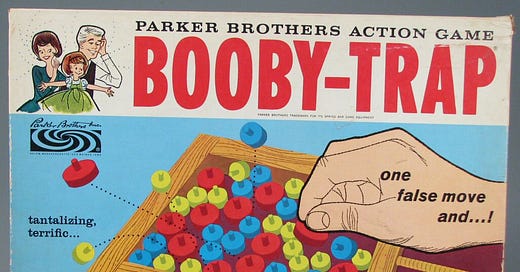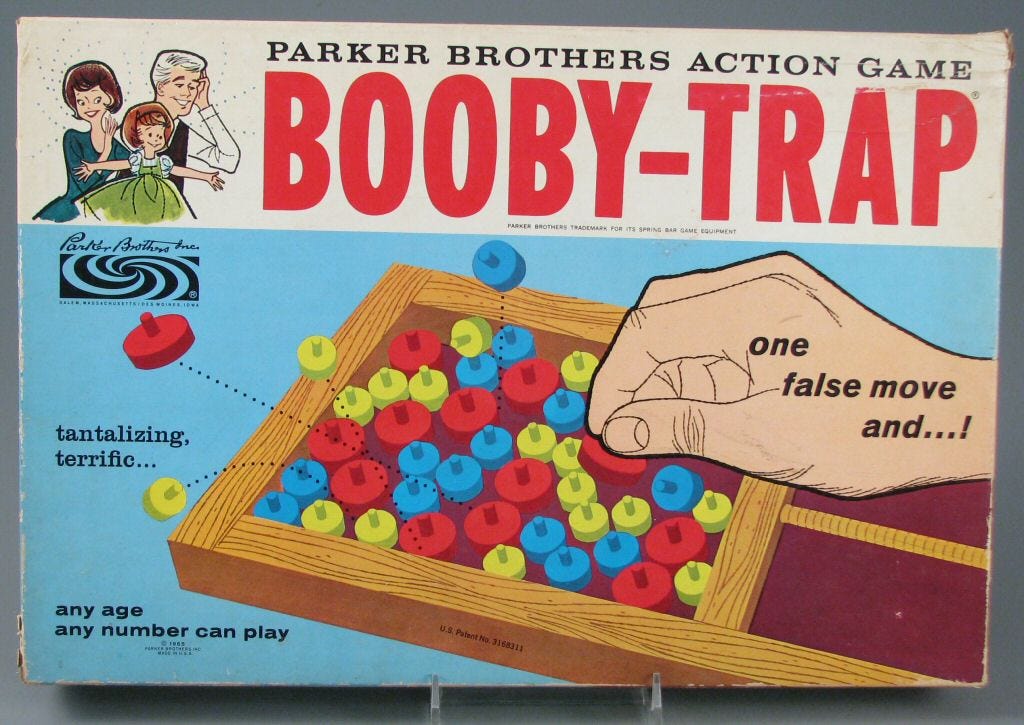Rob Smith, in one of his Literacy Shed blog posts writes:
As I have said in my previous posts - I am not opposed to testing. I do not like high stakes testing and how the tests are used to judge teachers and schools.
However, I am against tests that are filled with 'booby traps' and questions designed to confound and bamboozle young children. I call them 'trick questions,' but it has been pointed out to me that they are not trick questions just difficult ones.
I have come across a few sample SPAG test questions recently that have made me think.
The first from the KS1 Sample test.
Circle the verbs in the sentence below.
Yesterday was the school sports day and Jo wore her new running shoes.
'Booby traps' are what test designers call 'distractors'. These are plausible, but incorrect answers, often used in multiple choice tests. Having distractors is a way for a test to distinguish the more able candidates from the less able ones, which is what all tests need to do.
In the example that Rob quotes the 'booby traps' are the past tense verb wore and the word running before the noun shoes.
I think we can be brief about the first of these. Granted, wore is an irregular verb, i.e. it is not formed using the regular past tense inflection -ed, and hence less easily recognisable as a verb, but it is not unreasonable to have such distractors in the test, as they can be used to probe the depth of knowledge that a particular child has of the grammar of verbs.
The second booby trap is indeed questionable. Which word class does running belong to? In the test designers' view running is an adjective, since it occurs before a noun. They intended the item to 'catch out' children who think it is a verb. I agree with Rob that this is not a reasonable distractor, because it is highly debatable whether or not running is an adjective in this case. In my view it is more reasonably labelled as a verb. Why? Well, first of all, running is a present participle of the verb run. Secondly, if it were an adjective, why doesn't it behave like an adjective in other respects? We can't say, for example, *the very running shoes (compare the very big house) not can we say *the more running shoes (compare the more interesting problem). The fact that running occurs before a noun is neither a necessary nor a sufficient reason for labelling it as an adjective. Now, not all grammar books would agree with this. We're dealing with a problematic area of grammar that linguists have discussed extensively (for a summary, see my book Syntactic gradience: the nature of grammatical indeterminacy). For this reason it would not be fair to have this kind of distractor in tests for children.
Having said that, to my knowledge the sample test in which this item occurs had not been scrutinised by a Department for Education Test Review Group. As a member of one of these groups I can confidently say that unfair distractors such as the one discussed above are weeded out prior to publication.




